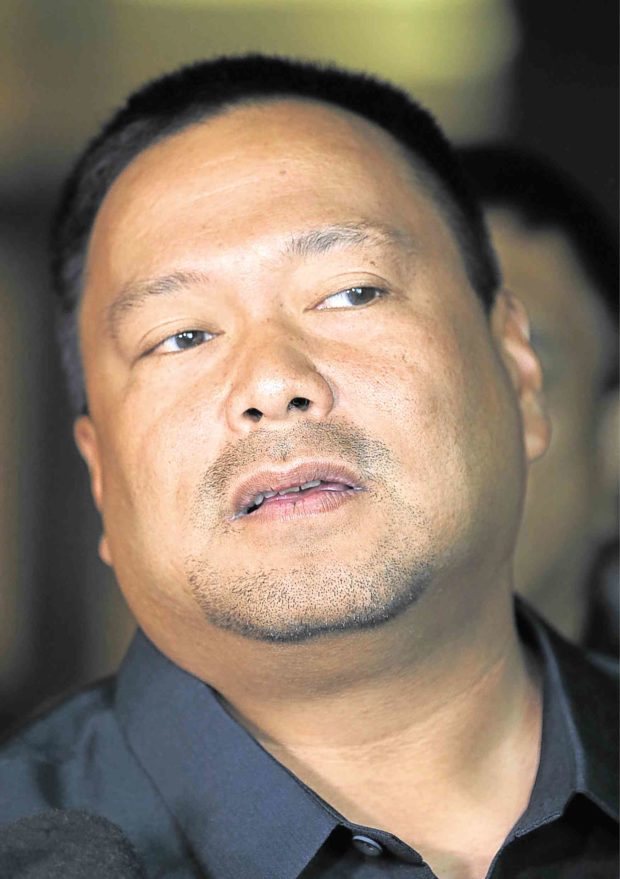‘Reasonable doubt’ clears JV of fund diversion

JV Ejercito
Sen. Joseph Victor “JV” Ejercito was acquitted on Thursday of diverting P2.1 million in calamity funds as mayor of San Juan City to purchase 20 submachine guns for the city police in 2008.
The Sandiganbayan’s Sixth Division exonerated Ejercito and 14 co-accused after finding reasonable doubt in the prosecution’s assertion that they were guilty of technical malversation.
“[Let] it be stressed that this verdict of acquittal is based on the failure of the prosecution to present proof beyond reasonable doubt that the accused indeed used the 2008 calamity fund in the procurement and payment of the subject firearms,” according to the 23-page decision penned by Associate Justice Rodolfo Ponferrada.
The court said testimony by the prosecution’s own witnesses showed that it was not the calamity fund that was used for the purchase of three Daewoo K2 submachine guns and 17 Daewoo K1 submachine guns but the city’s general fund.
Absolved
Article continues after this advertisementThis was the second acquittal for Ejercito in connection with the firearms purchase. In December last year, the Sandiganbayan’s Fifth Division also absolved him and five others on a separate graft charge.
Article continues after this advertisementOn Friday morning, Ejercito posted his reaction on Twitter: “Thank you Lord!”
Also acquitted were former Vice Mayor Leonardo Celles, and former city councilors and officials Francisco Zamora, Andoni Miguel Carballo, Dante Santiago, Edgardo Soriano, Joseph Christopher Torralba, Grace Pardines, Vincent Rainier Pacheco, Francis Peralta, Domingo Sese, Ramon Nakpil, Angelino Mendoza, Rolando Bernardo and Jannah Ejercito-Surla, also Ejercito’s cousin.
Ejercito, who served three consecutive terms as mayor from 2001 to 2010, was accused of conspiring with other local officials to tap the city government’s calamity funds to buy the firearms in February 2008.
The city council passed a resolution authorizing the purchase of the weapons even when San Juan was not facing a calamity at the time.
The antigraft court said the prosecution’s testimonial and documentary evidence failed to establish guilt.
“It must be remembered that in criminal cases, the burden of proof is on the prosecution, and unless it discharges that burden, the herein accused need not even offer evidence and they would be entitled to an acquittal,” it said.